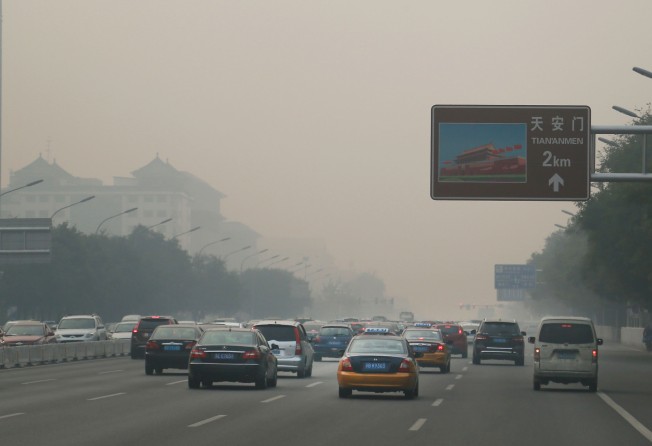Shamefaced officials deny cooking is main source of Beijing air pollution
Beijing Municipal Bureau of Environmental Protection refute claims by senior bureaucrat Zhao Hui-ming

Embarrassed Beijing government officials have sought to distance themselves from a senior bureaucrat’s comment that Chinese-style cooking was the main source of air pollution in the capital after it provoked widespread scorn and ridicule.
The Beijing Municipal Bureau of Environmental Protection yesterday denied that cooking was the main source contributing to PM2.5 – atmospheric particulate matter with a diameter of 2.5 micrometres or less. Compared with emissions from automobiles, burning coal and industrial dust, smoke from cooking only makes up a small proportion of the heavy smog in the capital city of China.
Zhao Hui-ming, head of the Foreign Affairs Office of the People’s Government of Beijing Municipality, made the comments on Tuesday at the Foreign Affairs Office’s press conference on next year’s Asia-Pacific Economic Cooperation (Apec) forum in Beijing. He said: “The traditional way of cooking Chinese dishes has contributed quite a portion to the PM 2.5 index. I hope Beijingers can cooperate to keep the air clean.”
The accusation has provoked heated discussions on social media, generating almost 50,000 Weibo posts as of Thursday lunchtime. More than 5,000 people participated in a survey on Weibo choosing whether they would “cooperate” or “cook as usual”. Only 14.2 per cent of the participants said they would “cooperate”.
“Let’s do even and odd-numbered dates for cooking, just like car licences. Cook on even-numbered dates, and starve on the odds! I would be proud to do it for next year’s Apec!” a netizen posted online under the name of “Yi Xinran”.
Another Weibo user wrote: “Support real-name registrations for cooking. Government leaders should go first.”
Other commentators applied the “cooking-pollution” logic to point out another potential source of pollution. “I think Chinese-style farting has a big impact on PM2.5 too. Everyone please hold your gas for our city’s clean air,” one wrote.
The environmental protection bureau confirmed that smoke from cooking did indeed pollute the city’s air, although on a minor level.
According to the statistics from the bureau, 22 per cent of the pollution leading to PM2.5 particles in Beijing is from automobiles, 16.7 per cent from burning coal and 15.8 per cent from industrial dust. There is no specific data on smoke from cooking.
“Smoke from cooking has always been a source of pollution, but it wouldn’t be the main source,” said Lingyan He, professor of the school of environment and energy at Peking University, Shenzhen campus, whose research focuses on atmospheric chemistry and environmental monitoring.
He confirmed that untreated smoke directly discharged to the atmosphere would cause air pollution. However this applies to cooking on a larger-scale, such as at restaurants, canteens, and outdoor barbeques, rather than daily cooking by residents.
As part of the Beijing government’s five-year action plan to clean up the air in the capital, the city has proposed to ban outdoor barbeques from public spaces in the inner city.
Meanwhile, the environmental protection bureau will closely monitor restaurants and canteens to ensure they implement high-efficiency smoke exhaust ventilators.